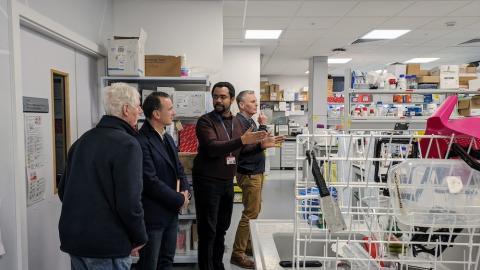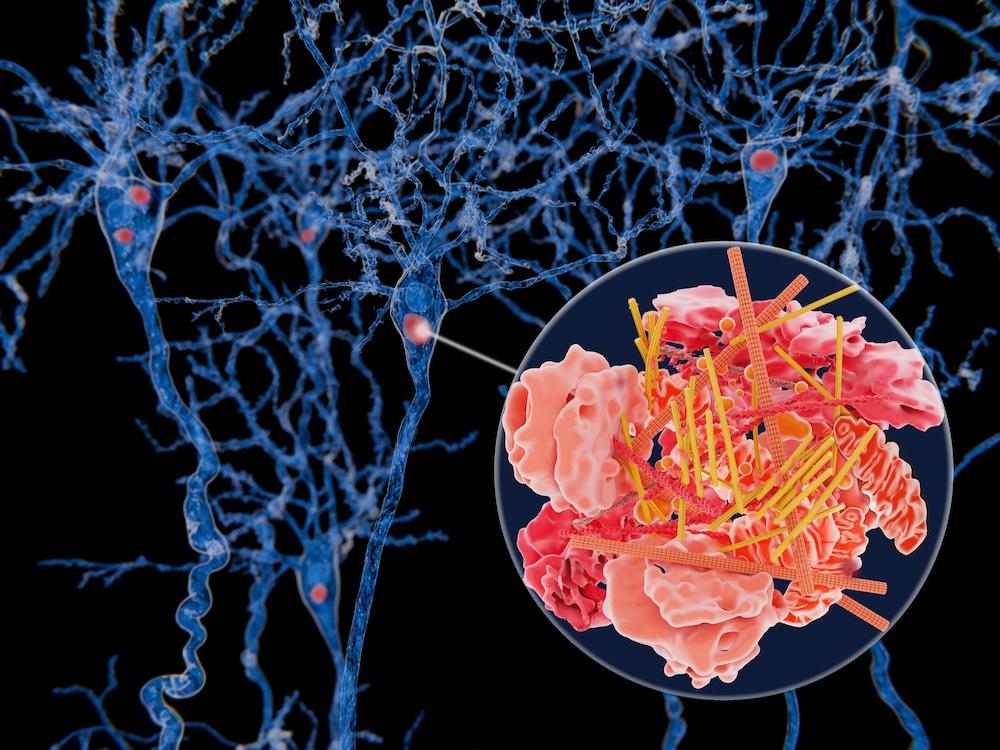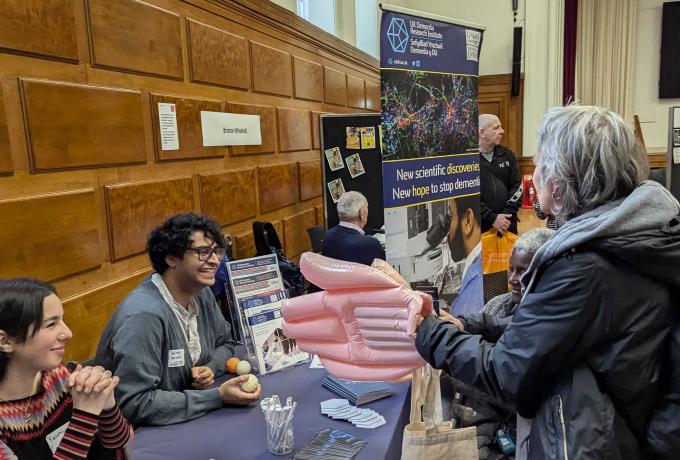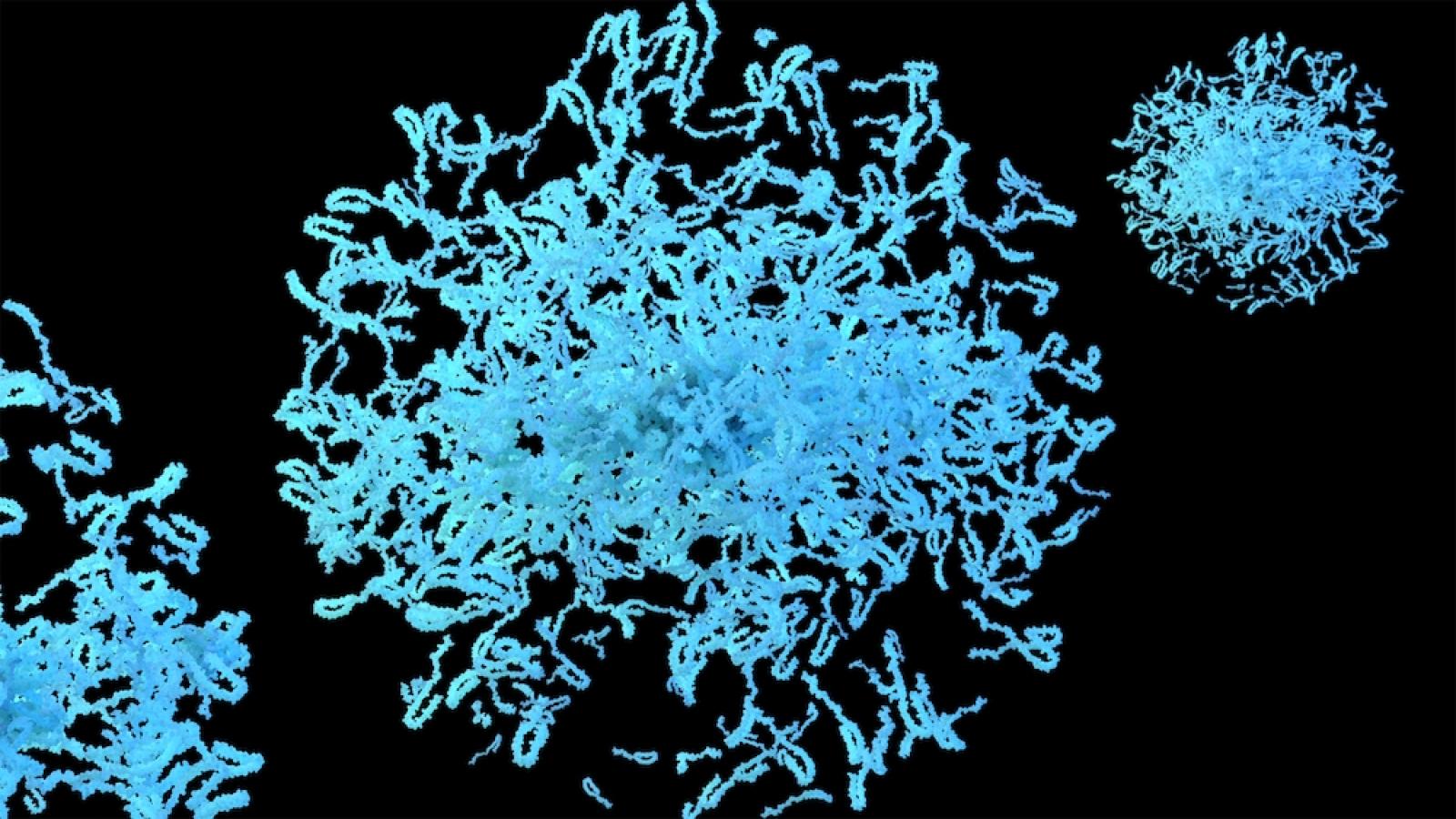A breakdown in brain cell communication during Parkinson's disease
Parkinson’s is the fastest growing neurological condition and the second most common neurodegenerative disorder - around 145,000 people live with the condition in the UK. Current therapeutics only treat symptoms so there is an urgent need to find ways to prevent the onset of Parkinson’s and slow progression.
The Beccano-Kelly lab studies communication between brain cells using research models of Parkinson’s. The team are aiming to decipher how miscommunication arises at the earliest stages of Parkinson’s, and find new ways of correcting it before significant loss of cells in the brain, and symptoms appear.
Latest news


Dr Dayne Beccano-Kelly
Dr Dayne Beccano-Kelly is a Group Leader at the UK DRI at Cardiff. Find out more about his career and expertise on his profile page.

Research summary

Lewy bodies develop inside nerve cells in Parkinson's disease and Lewy body dementia. Credit: Shutterstock/Juan Gaertner
Investigating synaptic health over time in neurodegeneration to identify dysfunctional mechanisms and early stage modifiable therapeutic targets
Dr Beccano-Kelly's research aims to identify early synaptic dysfunction in Parkinson’s to detect therapeutic targets and specifically ascertain an optimal therapeutic window.
Using human induced pluripotent stem cell (hiPSC) derived into dopaminergic and glutamatergic neurons, and genetic knock-in (KI) mouse models harbouring the G2019S disease causing Leucine Rich Repeat Kinase 2 (LRRK2) mutations, the team assess synaptic function at regular time points to elucidate early synaptic dysfunction and importantly, the progression of mechanisms both driving and derived from this change. The Beccano-Kelly Lab is uniquely placed to understand the different contributors to multiple stages of Parkinson's using a multifaceted design focused on the critical role of synaptic and electrophysiological changes to pinpoint early mechanisms, identify targets, and facilitate therapeutic development.
This is critical because many current therapeutic targets ignore the ever-evolving aspect of Parkinson's which results in a “moving target” for therapeutics with mechanisms changing with each stage of disease. Moreover, finding modifiers of disease progression early during pathogenesis is essential in preventing disease. Dr Beccano-Kelly's research has highlighted critically important, robust Parkinson's related phenotypes. Within these the team have identified novel genotype:sex:region:time dependent interactions.
This programme of research is the first of a long-term iterative four phase plan to understand and develop treatments for Parkinson's. Specifically: Phase 1) Phenotype identification at various time points; Phase 2) Target identification at different time points; Phase 3) Phenotype modification via target engagement and; Phase 4) Compound development and progression into trial. Having completed substantial parts of Phase 1, the team are now moving into Phase 2 to identify targets useful in reducing/slowing the impact of disease phenotypes on Parkinson's.
This will be executed through two key work packages:
- WP1 – Establish the molecular components contributing to complex electrophysiological dysfunction in iPSC derived neurons and KI mouse models.
- WP2 – Identify the contribution of altered electrophysiology to dysfunctional neural network activity and subsequent aberrant behaviour in awake mice and ex vivo slice
Key publications
Vacancies
Lab members
- Dr Shiva Kompella (Research Associate)
- Dr Gloria Cimaglia (Research Associate)
- Sheikh Shahzabe Mukhtar (PhD Student)
- Yasmina Bendriss (PhD Student)
- Shikha Kataria (PhD Student)
- Cerys Roberts (PhD Student)




Collaborators













Lab funders
Thank you to all those who support the Beccano-Kelly Lab!


